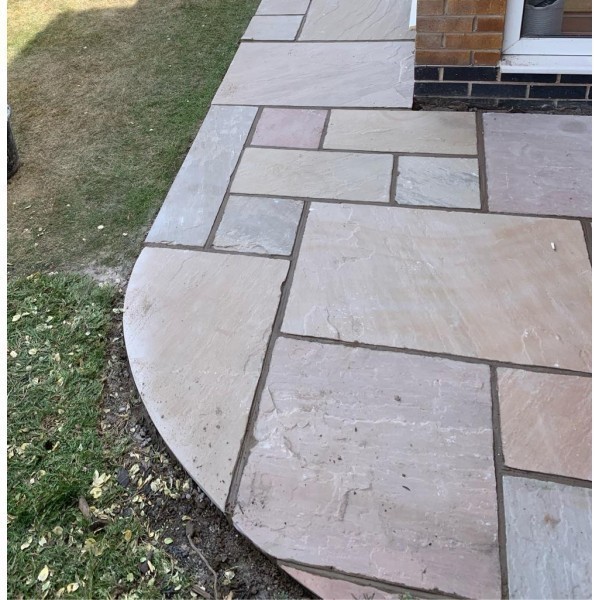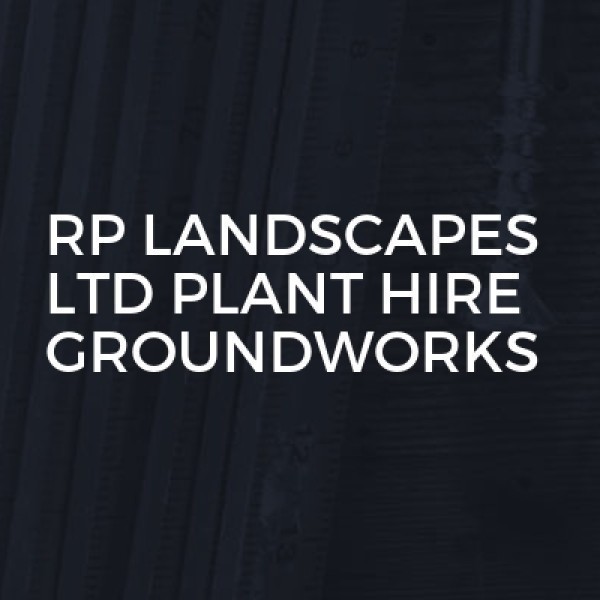Block Paving in Chester
Search Block Paving in places nearby
Introduction to Block Paving in Chester
Block paving in Chester is a popular choice for homeowners and businesses alike, offering a durable and aesthetically pleasing solution for driveways, patios, and pathways. This versatile paving option is renowned for its ability to withstand the test of time while enhancing the visual appeal of any property. In this article, we'll explore the various aspects of block paving, from its benefits and types to installation and maintenance tips, ensuring you have all the information needed to make an informed decision.
The Benefits of Block Paving
Block paving offers a myriad of benefits that make it a preferred choice for many. Firstly, it provides a robust and long-lasting surface that can endure heavy loads and harsh weather conditions. Additionally, block paving is highly versatile, available in a range of colours, shapes, and patterns, allowing for customisation to suit any style or preference. Furthermore, it is easy to repair, as individual blocks can be replaced without disturbing the surrounding area. This makes block paving a cost-effective and low-maintenance option for any property.
Durability and Longevity
One of the standout features of block paving is its durability. Made from materials such as concrete or clay, block paving is designed to withstand significant wear and tear. This makes it an ideal choice for areas with heavy foot traffic or vehicular use. With proper installation and maintenance, block paving can last for decades, providing a long-term solution for your paving needs.
Customisation and Aesthetic Appeal
Block paving offers endless possibilities for customisation, allowing you to create a unique look that complements your property. With a wide variety of colours, shapes, and patterns available, you can design a paving solution that reflects your personal style. Whether you prefer a traditional cobblestone look or a modern geometric pattern, block paving can be tailored to meet your aesthetic preferences.
Easy Maintenance and Repair
Maintaining block paving is relatively straightforward, requiring only occasional cleaning to keep it looking its best. In the event of damage, individual blocks can be easily replaced, making repairs simple and cost-effective. This ease of maintenance is a significant advantage over other paving options, which may require more extensive repairs or replacement.
Types of Block Paving
There are several types of block paving available, each offering unique characteristics and benefits. Understanding the differences between these options can help you choose the best solution for your needs.
Concrete Block Paving
Concrete block paving is a popular choice due to its affordability and versatility. These blocks are available in a wide range of colours and shapes, allowing for customisation to suit any design preference. Concrete blocks are also highly durable, making them suitable for both residential and commercial applications.
Clay Block Paving
Clay block paving is known for its natural beauty and rich colour variations. Made from natural clay, these blocks offer a timeless appeal that can enhance the aesthetic of any property. While clay blocks tend to be more expensive than concrete, they offer superior durability and resistance to fading, ensuring a long-lasting and attractive finish.
Natural Stone Block Paving
For those seeking a premium option, natural stone block paving provides an elegant and sophisticated look. Available in materials such as granite, limestone, and sandstone, natural stone blocks offer unique textures and colours that can create a stunning visual impact. Although natural stone is typically more expensive, its durability and aesthetic appeal make it a worthwhile investment.
Installation Process of Block Paving
The installation of block paving involves several key steps to ensure a durable and attractive finish. While it is possible to undertake this project as a DIY endeavour, hiring a professional installer can guarantee a high-quality result.
Site Preparation
Proper site preparation is crucial for a successful block paving installation. This involves clearing the area of any debris, vegetation, or existing paving. The ground must then be excavated to the appropriate depth, ensuring a stable base for the paving.
Base Layer Installation
The base layer is a critical component of block paving, providing stability and support for the blocks. A layer of crushed stone or gravel is spread evenly across the excavated area and compacted to create a solid foundation. This layer should be levelled carefully to ensure an even surface for the paving.
Laying the Blocks
Once the base layer is prepared, the blocks can be laid in the desired pattern. It is essential to start from a fixed point, such as a corner or edge, and work systematically across the area. Spacers can be used to ensure consistent gaps between the blocks, which will be filled with jointing sand later.
Jointing and Compaction
After the blocks are laid, jointing sand is brushed into the gaps to lock the blocks in place. This sand helps to prevent movement and provides additional stability. Finally, the entire area is compacted using a vibrating plate compactor, ensuring the blocks are firmly set and the surface is level.
Maintaining Block Paving
Proper maintenance is essential to keep block paving looking its best and prolong its lifespan. Regular cleaning and occasional repairs can help maintain the appearance and functionality of your paving.
Cleaning and Weed Control
Regular cleaning is necessary to remove dirt, debris, and stains from block paving. A simple sweep with a broom or a wash with a pressure washer can keep the surface clean and tidy. Additionally, applying a weed killer can prevent unwanted vegetation from growing between the blocks, maintaining a neat appearance.
Repairing Damaged Blocks
In the event of damage, individual blocks can be easily replaced. Simply remove the damaged block, clean the area, and insert a new block in its place. This straightforward repair process is one of the key advantages of block paving, allowing for quick and cost-effective maintenance.
Sealing Block Paving
Sealing block paving can provide additional protection against stains, weathering, and weed growth. A high-quality sealant can enhance the colour and appearance of the blocks while extending their lifespan. It is recommended to reseal block paving every few years to maintain its protective properties.
Cost Considerations for Block Paving in Chester
The cost of block paving in Chester can vary depending on several factors, including the type of blocks chosen, the size of the area, and the complexity of the design. Understanding these cost considerations can help you budget effectively for your paving project.
Material Costs
The cost of block paving materials can vary significantly based on the type of blocks selected. Concrete blocks are generally the most affordable option, while clay and natural stone blocks tend to be more expensive. It is important to consider the long-term benefits and durability of each material when making your decision.
Labour Costs
Labour costs for block paving installation can also vary depending on the complexity of the project and the experience of the installer. Hiring a professional installer can ensure a high-quality result, but it is essential to obtain quotes from multiple contractors to find a competitive price.
Additional Expenses
Additional expenses, such as site preparation, base layer materials, and sealant, should also be factored into the overall cost of your block paving project. These elements are crucial for a successful installation and should not be overlooked when budgeting.
Choosing the Right Block Paving Contractor in Chester
Selecting the right contractor is essential for a successful block paving project. A reputable and experienced contractor can ensure a high-quality installation that meets your expectations.
Research and Recommendations
Start by researching local contractors and seeking recommendations from friends, family, or neighbours who have had block paving installed. Online reviews and testimonials can also provide valuable insights into the quality of a contractor's work.
Obtaining Quotes
Obtain quotes from multiple contractors to compare prices and services. Be sure to ask for a detailed breakdown of costs, including materials, labour, and any additional expenses. This will help you make an informed decision and avoid any unexpected costs.
Checking Credentials
Ensure that the contractor you choose is fully licensed and insured. This provides peace of mind and protection in the event of any issues during the installation process. Additionally, ask to see examples of their previous work to assess the quality and style of their installations.
Environmental Considerations of Block Paving
Block paving can have environmental impacts, but there are steps you can take to minimise these effects and create a more sustainable paving solution.
Permeable Paving Options
Permeable block paving allows water to drain through the surface, reducing runoff and helping to prevent flooding. This environmentally friendly option can also improve groundwater recharge and reduce the risk of water pollution.
Sustainable Materials
Choosing sustainable materials for your block paving can help reduce its environmental impact. Look for blocks made from recycled materials or those sourced from environmentally responsible manufacturers. This can help minimise the carbon footprint of your paving project.
Eco-Friendly Maintenance Practices
Adopting eco-friendly maintenance practices can further reduce the environmental impact of block paving. Use biodegradable cleaning products and avoid harsh chemicals that can harm the environment. Additionally, consider using organic weed control methods to maintain a healthy and sustainable paving surface.
Frequently Asked Questions
- What is block paving? Block paving is a type of decorative paving made from individual blocks, typically used for driveways, patios, and pathways.
- How long does block paving last? With proper installation and maintenance, block paving can last for several decades.
- Can block paving be installed as a DIY project? While it is possible to install block paving yourself, hiring a professional can ensure a high-quality result.
- How do I maintain block paving? Regular cleaning, weed control, and occasional repairs are essential for maintaining block paving.
- What are the environmental benefits of permeable block paving? Permeable block paving reduces runoff, improves groundwater recharge, and helps prevent flooding.
- How can I choose the right block paving contractor? Research local contractors, obtain quotes, and check credentials to find a reputable and experienced installer.
Final Thoughts on Block Paving in Chester
Block paving in Chester offers a durable, versatile, and aesthetically pleasing solution for enhancing the appearance and functionality of your property. With a range of materials, colours, and patterns available, you can create a customised paving solution that meets your needs and preferences. By understanding the benefits, types, installation process, and maintenance requirements of block paving, you can make an informed decision and enjoy a beautiful and long-lasting paving surface. Whether you're considering a DIY project or hiring a professional contractor, block paving is a worthwhile investment that can add value and curb appeal to your home or business.






